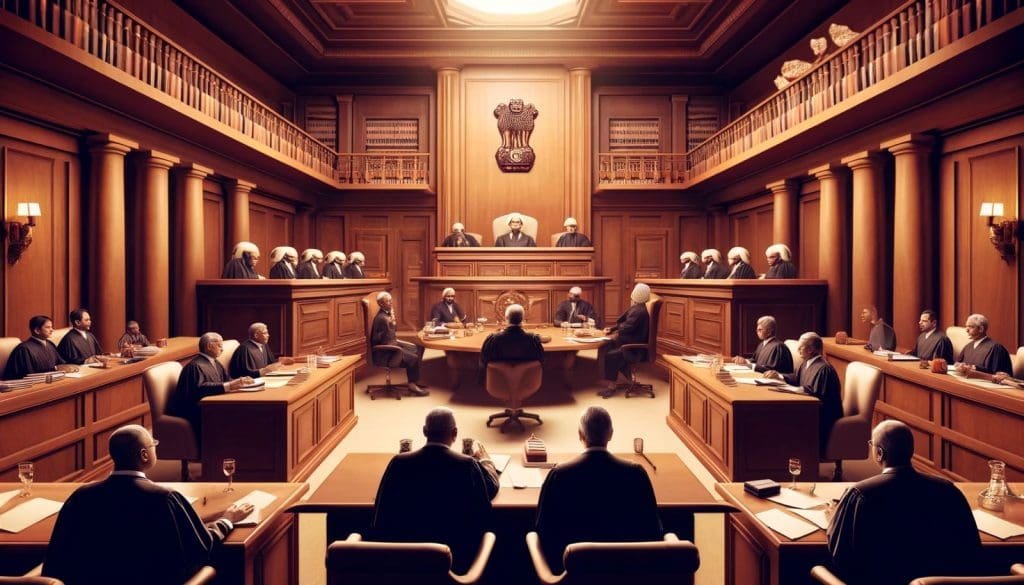
Overview
In a landmark decision, the Supreme Court of India has ruled that both civil suits to enforce claims in benami property and criminal proceedings by the ‘real’ owner are impermissible under the current legal framework. This decision reinforces the stringent provisions of the Benami Transactions (Prohibition) Act, 1988 and its subsequent amendments in 2016.
Key Details of the Judgment
The Supreme Court’s ruling specifically addresses the prohibition of civil and criminal actions related to benami properties. According to Section 4 of the 1988 Act, any suit, claim, or action to enforce rights in respect of benami property against the person in whose name the property is held (the benamidar) is prohibited. This effectively bars the ‘real’ owner from initiating legal proceedings to recover such property oai_citation:1,Decoding of Supreme Court Judgement on Benami law – Digest of case laws oai_citation:2,Property Deals Were Benami Transactions; Criminal Prosecution Of Accused Impermissible: SC Quashes FIR Lodged By Govt. Teacher.
Moreover, the court has extended this prohibition to criminal proceedings. The judgment states that if civil recovery actions are barred, allowing criminal prosecutions for the same cause of action would be legally inconsistent and impermissible. This decision is grounded in the principles of legal uniformity and the protection of property rights under the Benami Act oai_citation:3,Decoding of Supreme Court Judgement on Benami law – Digest of case laws oai_citation:4,Property Deals Were Benami Transactions; Criminal Prosecution Of Accused Impermissible: SC Quashes FIR Lodged By Govt. Teacher.
Background and Implications
The Benami Transactions (Prohibition) Act, 1988, originally enacted to curb the practice of benami transactions, has undergone significant amendments to enhance its effectiveness. The 2016 amendments introduced stringent measures, including the confiscation of benami properties and criminal penalties for violators. However, the Supreme Court has declared certain provisions of these amendments, particularly those applied retroactively, as unconstitutional oai_citation:5,Sections 3 and 5 of the 1988 Benami Property law “still-born” and “unconstitutional”; 2016 Amendment can only apply prospectively: Supreme Court | SCC Times oai_citation:6,India – Supreme Court Strikes Down The Old Benami Law As Unconstitutional. – Conventus Law.
The recent ruling underscores that the Act’s provisions should not be applied retroactively to transactions that occurred before the amendments came into effect on October 25, 2016. This ensures that individuals and entities are not subject to punitive measures for past actions under the new, stricter legal framework oai_citation:7,India – Supreme Court Strikes Down The Old Benami Law As Unconstitutional. – Conventus Law oai_citation:8,Explained | The Benami Act, 2016, and changes brought by Supreme Court.
Legal and Social Impact
This Supreme Court judgment has significant implications for property law and enforcement in India. It highlights the importance of clear legislative intent and the necessity of aligning civil and criminal legal processes. By barring both civil and criminal actions related to benami properties, the court aims to prevent legal inconsistencies and ensure fair treatment under the law.
The ruling is expected to provide relief to many individuals and entities who were facing legal challenges under the Benami Act, particularly those involving transactions prior to the 2016 amendments. It also emphasizes the need for legislators to carefully draft laws that balance enforcement with constitutional safeguards.
Conclusion
The Supreme Court’s decision marks a critical development in the enforcement of property laws in India. By clarifying the limitations on civil and criminal proceedings related to benami transactions, the court has reinforced the importance of legal consistency and the protection of property rights. This ruling will have lasting effects on how benami transactions are regulated and enforced in the future.